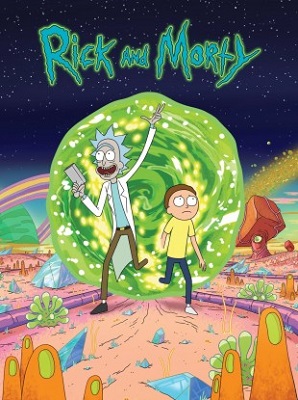Before the Great Szechuan Sauce Meltdown of 2017, I hadn’t thought about Cartoon Network’s breakout hit Rick and Morty for over a year. Having witnessed the Internet sensation around the series, I wanted to understand the fervor it engendered. So I watched two episodes, concluded this series wasn’t for me, and didn’t think about it again. Clearly I overlooked something important, because the Szechuan Sauce debacle chills my bones.
For those playing the home game, the third-season Rick and Morty opener included an extended gag pleading for McDonald's to bring back “Szechuan”-flavored McNugget dipping sauce, a short-lived promotional item from 1998. McDonald’s, without consulting the production house, went along with a one-day gimmick resurrection. But they didn’t plan appropriately, distributed sauce haphazardly, and fans were disappointed. Worse, many were outraged. Some fan protests turned into mini-riots.
We could calibrate how imbecilic this debacle really is. Multiple sources have published open-source sauce recipes, which have mostly been around since the sauce first gained admirers nineteen years ago. But for fans, the sauce as comestible doesn’t really matter; geek culture is clearly about shared experiences—and the experience of getting Rick Sanchez’s favorite dipping sauce from his favorite restaurant matters to show fans more than the food.
Never mind that audiences understand Rich Sanchez is supposed to be an obnoxious human being. Never mind that, in pursuit of his appetites, he broke up his daughter’s marriage in that episode, and prior episodes have included murder and implications of incest. The series anti-hero wanted a specific experience, and fans wanted to share that experience. And McDonald’s failed to anticipate the zeal fans bring to having sharing their goals.
Unfortunately, McDonald’s apparently doesn’t understand new manifestations of fan culture. Until this week, McDonald’s, like me, thought fan culture still revolves around small handfuls of geeks wearing Star Trek uniforms or Jedi robes, hand-distributing mimeographed fanzines which only a handful of friends would probably ever see. I've personally excused revolting fan behavior in the past, largely because my belief in fan culture hadn’t much evolved since 1991.
But those days are gone.The Internet now permits fans to organize without regard for geography. No more do fans need to organize conventions in hotel ballrooms in hopes of meeting fellow Trekkers beyond those they attended high school with; I could meet Trekkers in London, Sydney, Trinidad, and the Ross Ice Shelf by logging on. The capacity for unified fan action has never been greater… which is awesome, for essentially benign fandoms.
But we’re not talking about Star Trek, or its uplifting humanist values, anymore. The spread of organized fan culture has coincided with some pretty terrible fan objects. Some of fandom’s most influential properties, like Mad Men, Arrested Development, and Game of Thrones, star characters who exist specifically to be revolting, amoral throwbacks. But fans don’t make that distinction. So we get nerdboys deliberately mimicking Rick Sanchez.
Rick and Morty’s creators have tried to distance themselves from their fandom, especially as the primarily male base has reacted violently to hiring women writers for Season Three. But that’s too little, too late. The entire show exists to spotlight a sociopath whose sense of entitlement overwhelms things like family, common decency, and human life. And it’s attracted a fandom which, to a shocking degree, shares these values.
McDonald’s learned to ignore fan dynamics at their peril. Entitled fans screamed abuse at minimum-wage workers, disrupted business, and demanded their wants be treated as sacrosanct. I could understand such disruptions for noble ends, for instance, protesting that a corporation which claims billions of dollars’ profit every quarter claims it can’t afford giving front-line workers a modest raise. But this was idiot man-children throwing a tantrum over a cartoon.
This isn’t a McDonald’s problem, friends. Recent accusations of sociopathic behavior from superstars like Harvey Weinstein and Ben Affleck have gotten papered over to keep money rolling in, while controversies haven’t stuck to Woody Allen and Roman Polanski. Because hey, the fan base prints money. And this same appeal to sociopathy has given powerful, culture-defining careers to Roger Ailes, Bill “Falafel” O’Reilly, and Donald Trump.
McDonald’s will shrug this controversy off. As the only ready source of cheap, ready-to-eat food in many poor neighborhoods and overbuilt suburbs, its principal customers can’t afford a meaningful boycott. But the images of screaming, entitled fans will remain an American shame for years. Because this fandom didn’t happen; it was cultivated for profit. And fandoms like it will arise as long as there’re man-babies with money.

No comments:
Post a Comment